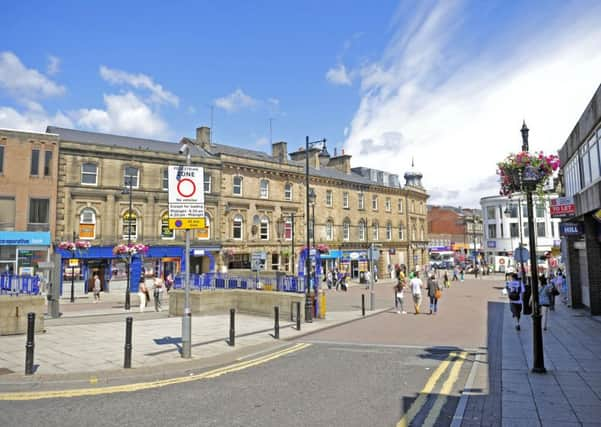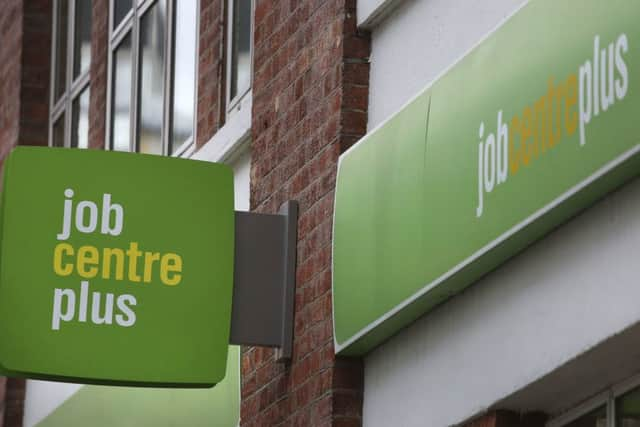Jayne Dowle: Why jobs statistics tell only part of the overall Brexit story – here’s the view from Barnsley


The Office for National Statistics says that the jobless rate fell to a fresh low of 3.9 per cent in the three months to January as companies – against all expectations – increased their hiring activity to add another 222,000 people to the UK workforce. This takes the overall number in work to a record high of 32.7 million.
Advertisement
Hide AdAdvertisement
Hide AdI’m surprised that the Prime Minister and her colleagues have not made more capital out of this surprising turnaround in expectations, but I guess they have been slightly distracted.


Or perhaps these apparently cheerful figures don’t bear too much close scrutiny. For starters, they refer to the pre-Christmas months when many companies take on seasonal short-term workers.
And, of course, they don’t reflect the feeling of doom which has descended on the nation since the New Year dawned and Brexit came to dominate to such an extent.
What’s more, as Charlie McCurdy, a researcher for the Resolution Foundation points out, there is a potential snag in the fact that rising employment is set against a complete stagnation in business investment as Brexit uncertainty heightens.
Advertisement
Hide AdAdvertisement
Hide AdThat might be why, as I walk around my own home town of Barnsley, I don’t quite feel that joyful spring in my step.
From what I hear, far too many of these so-called jobs comprise agency work in warehouses and logistics centres and the social care sector, which come with no guarantee of regular hours, rates of pay which will never go above the minimum wage and little chance of progression to better-paid and more permanent positions.
In this regard we have much in common with many other medium-sized towns in the North, feeling their way towards a new way of working that has nothing to do with manufacturing and traditional heavy industry and everything to do with the service economy and privatisation of services, such as looking after the elderly and vulnerable.
There is also the hurdle of getting into work in the first place, which for those on Universal Credit can be a complex and often terrifying experience; the amount of ‘top-up’ benefit awarded drops as take-home pay rises, but inevitably, many people are experiencing miscalculations and penalties that are leaving them literally penniless for weeks at a time. This can present such a massive hurdle, it deters confidence in taking those first steps towards earning a living permanently.
Advertisement
Hide AdAdvertisement
Hide AdA recent strategy report from Barnsley Metropolitan Borough Council did find that the local economy has made good progress recently, with increases in new businesses and an improved employment rate which, at 73.4 per cent, now out-performs city-region averages.
However, it stated quite categorically that there is a need to enhance the number and quality of jobs in Barnsley. And despite recent progress, it highlighted both a critical need to address the educational attainment deficit and the importance of providing better opportunities for useful work experience and improve links between schools, colleges and employers.
It also warned that, in general, there is a need to create a much stronger culture of ambition in Barnsley people, businesses and communities – and again, I’d argue that this is as true here as it is in places like Rotherham, Morley, Halifax and Castleford.
A headline employment figure tells only one story; how many people are in work. If we are, as a region, to thrive and prove ourselves capable of self-government, we have to push forwards a culture of enterprise and self-confidence which is often lacking in some of our most battered communities.
Advertisement
Hide AdAdvertisement
Hide AdSuch caveats aside, there is much to remark upon, such as the fact that women are leading the charge, with almost three in four aged 16 in 64 now earning their living, including a huge rise in employed mothers, which suggests some interesting social and economic trends that must be welcomed.
However, for every plus point, there is a detail which indicates that some of these seismic shifts are not all being driven entirely by free will.
Much of the jobs growth in recent years is due to older people having little choice but to stay in the workforce for longer because of changes in the state pension age.
Therefore, whilst it is true that these new employment figures offer a startling ray of sunshine in what has been quite possibly the dreariest early spring ever, we shouldn’t be blinded by the light. What will really count is what the bigger picture will look like next year at this time, and when the storms of Brexit have done their worst.